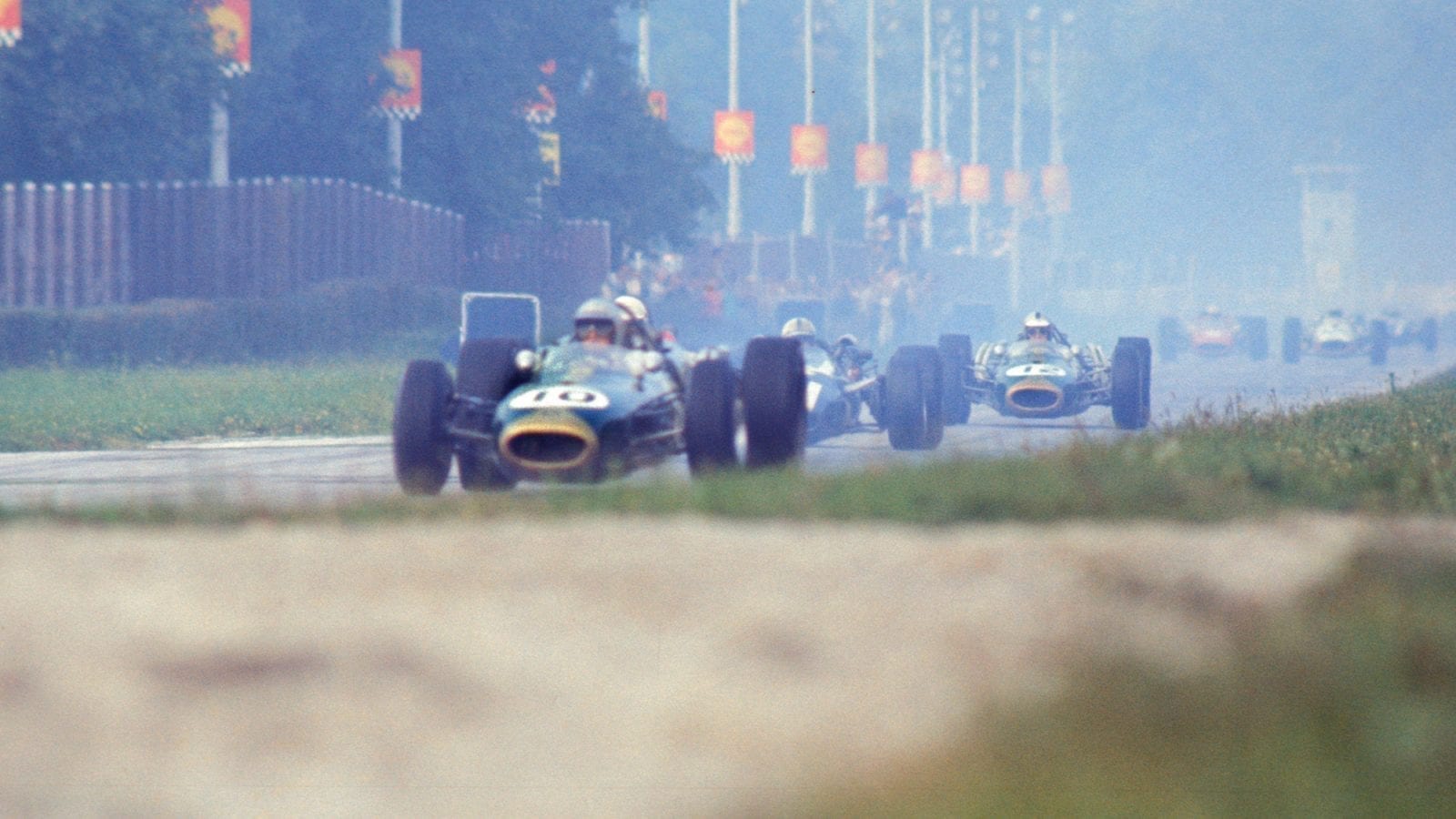New rules for 1966 allowed the capacity of normally aspirated engines to double to 3-litres in 1966 and so marked Formula 1’s “return to power”. Although the specifications had been announced three years earlier, many teams were far from ready. Ferrari, however, was prepared for the change and so started the season as favourites once more.
Jackie Stewart’s old 2-litre BRM won on the tight confines of Monte Carlo but the fit again John Surtees confirmed Ferrari’s status by dominating in Belgium. However, the Italians lost their impetus when internal politics forced Surtees to leave and seek refuge in the Cooper team.
Jack Brabham quickly exploited this vacuum with four successive victories, enough to make him the first man to win the World Championship in a car bearing his own name. His team exclusively used the new Holden/Repco engine, which was based on an aluminium stock-block Oldsmobile. Although the Repco was not as powerful as other 3-litre units, it was reliable and proved quick enough to win.
Coventry Climax had withdrawn from F1 at the end of 1965, leaving the British teams looking for alternative power sources. Cooper arranged to use Maserati V12 engines that had last been raced nine years ago. Their improving season was rewarded when Surtees won the last race in Mexico to finish as runner-up in the drivers’ championship. Bruce McLaren’s new team experimented unsuccessfully with V8s from both Ford (its Indianapolis 500 engine) and Serenissima, while others bored out old engines to 2-litres as a stopgap.
BRM eventually introduced the unreliable and complicated H16 unit, which was essentially two 1.5-litre V8s mated together. The only win for the engine was in the United States GP, where it was used in Jim Clark’s Lotus 43.

